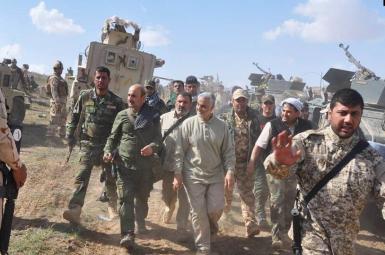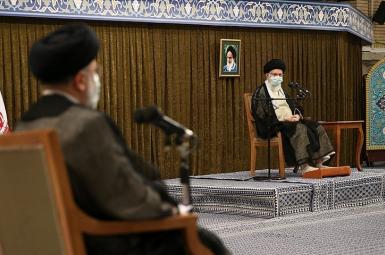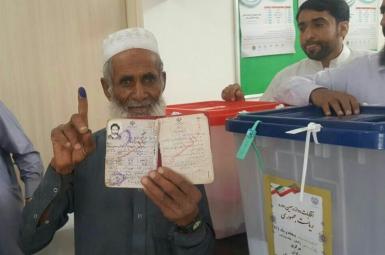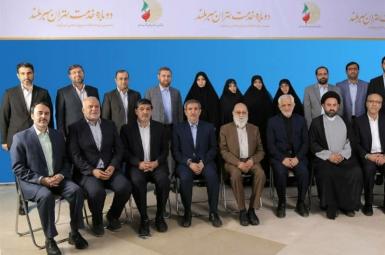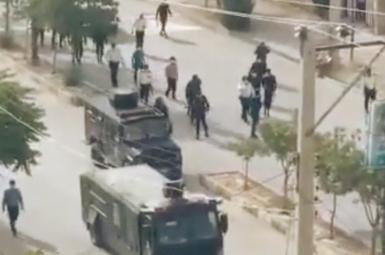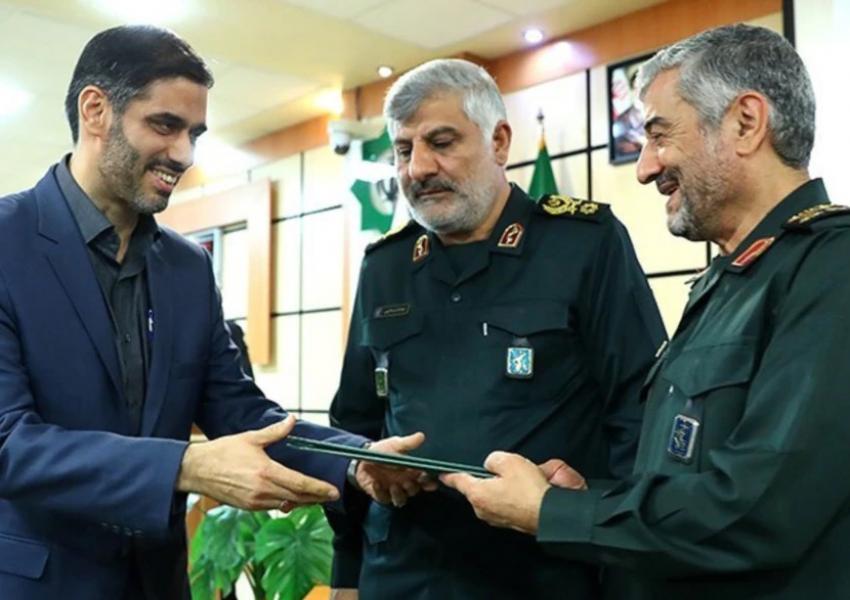
Guards Trade Blows As Iran Presidential Election Run-In Heats Up
Iran’s upcoming presidential election seems to have created divisions among the Islamic Revolution Guard Corps (IRGC) top brass, as its top website has attacked one of its younger generals running in the June vote.
Revolutionary Guard Brigadier-General Yadollah Javani disputed Saeed Mohammad's claim that he resigned from his position as head of the IRGC’s Khatam al-Anbiya Construction Headquarters to run in the presidential election. Javani told Fars News Agency on Saturday that Mohammad had been fired for breaking legal procedures in announcing his candidacy, prompting Mohammad to charge that Javani, who heads the IRGC’s Political Bureau, was speaking purely in a personal capacity.
"The IRGC is against involvement of its members in the elections, including Saeed Mohammad, without due legal procedures," Javani told Fars, which is affiliated to the IRGC. "In fact, this infringement and failure to follow regulations was the reason that Saeed Mohammad was dismissed from [his position as] commander of the Khatam al-Anbiya Construction Headquarters."
But a statement from Mohammad's office, released on his Telegram channel, called Javani's remarks a "media game," and suggested that “the repetition of this type of interviews…considering personal and factional affiliations of certain people…[would] lead to the loss of public trust as well as maximal participation [in June’s election]."
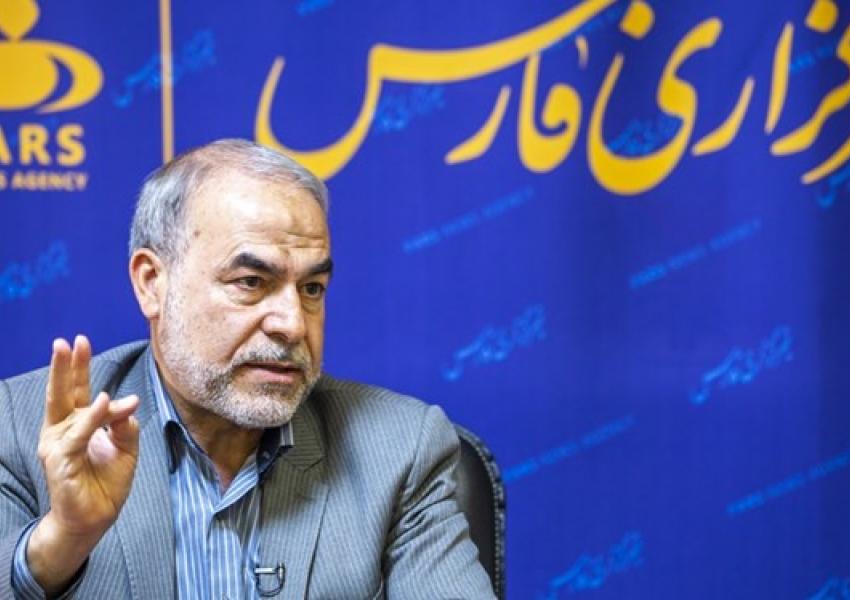
It is not clear whether the spat is personal or reflects a wider rift. Raja News, a hardline website that backs Mohammad's candidacy, alleged that Javani supports a rival candidate and wants to "oust his rivals before the elections." Raja News stressed that Mohammad was appointed as an adviser by IRGC Commander-in-Chief Hossein Salami on the day of his reported resignation.
Mohammad announced his candidacy in early March, tweeting that he had resigned from his post so that any election contention would not compromise the Guards. His claim was challenged by conservative politician Hamidreza Taraghi, who said Mohammad had been removed due to unspecified "violations."
Mohammad, 53 - who belongs to the second generation of the Guards, those who did not fight in the 1980-88 Iran-Iraq War - has been dubbed the "young general" by supporters. They often imply that he is the favored candidate of Supreme Leader Ali Khamenei, who has on several occasions called for a "young revolutionary government."
But Javani told Fars that the leader was talking primarily about youth. "Belonging to Hezbollah or revolutionary as in ‘young government belonging to Hezbollah’ that the Supreme Leader says is equivalent to Islamic… does not necessarily refer to age and could not be taken as Khamenei's preference for a "president young[er] in age," he told Fars.
In his interview with Fars, Javani also referred to the vetting of candidates done by the election watchdog, the Guardian Council, which is appointed by Khamenei. He appeared to imply Mohammad might not be approved to run.
The number of possible candidates from the Revolutionary Guards has alarmed not only centrist and reformist politicians but some conservatives who fear their preferred candidates would be weakened. Reformists and centrists have suggested they will not campaign in the election if their candidates are not cleared to run.
Khamenei and other leaders have always encouraged a high turnout in the elections as proof of the vitality of the Iranian system. "Maximal participation [in the vote] … will ensure security, it sends a message to the enemy and preserves the country's dignity," Javani stressed to Fars.
While presidential elections in Iran warm up late, a sense of competition encourages turnout. In 2005 Khamenei instructed the Guardian Council to reverse a decision not to allow reformists Mostafa Moeen and Mehdi Karroubi to run. Karroubi came 3rd and Moeen 5th in a field of seven, with Mahmoud Ahmadinejad defeating Akbar Hashemi Rafsanjani in a run-off ballot.
Moeen, Rafsanjani and Ahmadinejad were all turned down by the Guardian Council in later parliamentary or presidential elections. Karroubi ran unsuccessfully in the 2009 disputed election.

